When I was a kid, my dad and I bonded by going to garage sales, swap meets, and farms. Yet for how much time we spent surrounded by the exchange of excess American goods, my dad was a stickler about shopping. He didn’t like it when people, even my mom, got me gifts. He hated American consumerism. However, he made an exception – for horse figurines.
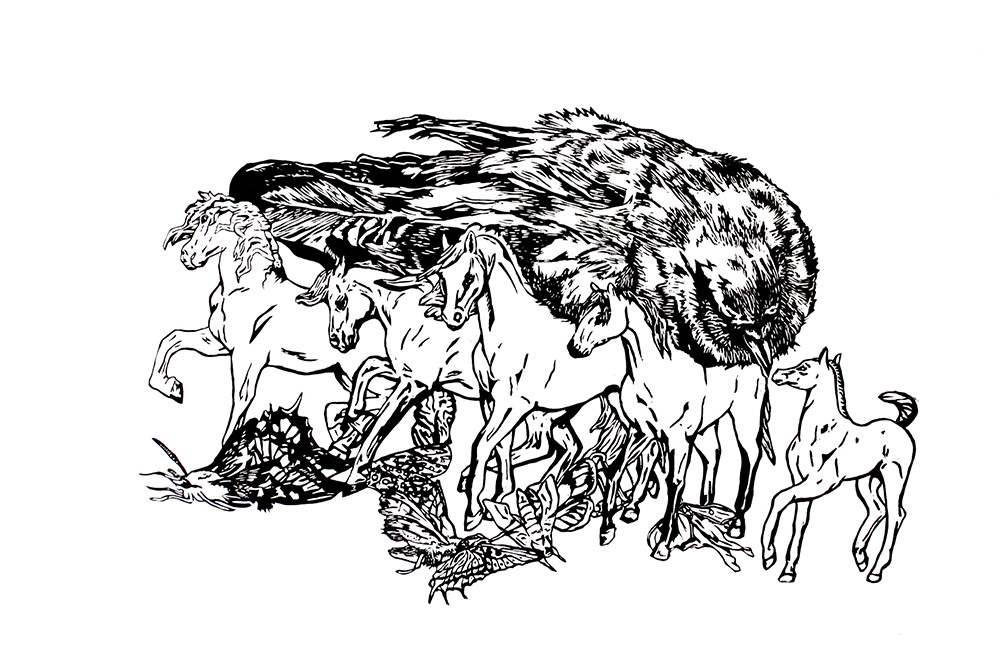
Horses were special to my dad. He found solace with animals in the midst of a tumultuous childhood against the backdrop of 1950s and 60s China, solace that shielded him from the worst of inhumanity. One of his happiest childhood memories was at a military base, where he would offer to take soldiers’ horses to the river for a drink of water. At the river, he jumped on the horses’ backs and taught himself how to ride. He said he felt like he was flying.
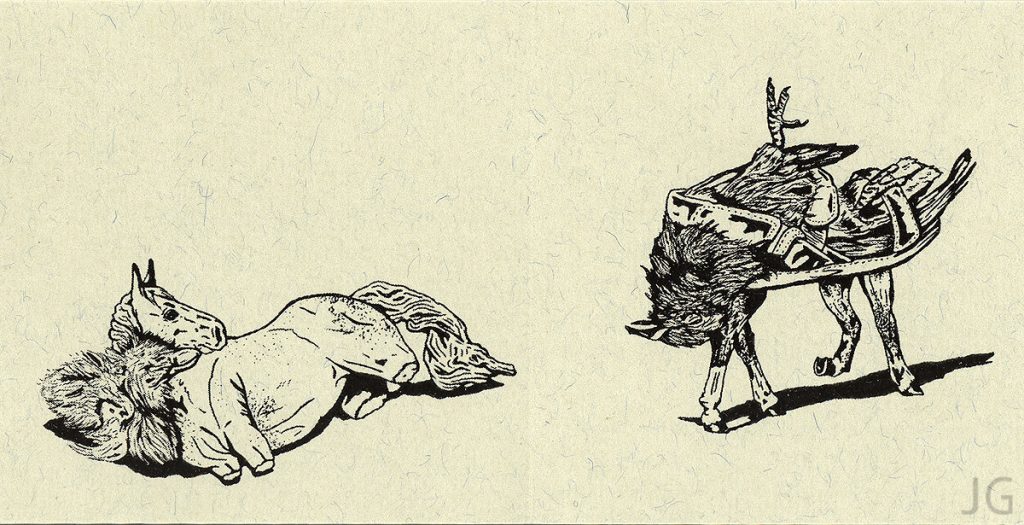
When my dad and I would go to the store, we would sit on the floor in the toy aisle and he would teach me everything he knew about horses using these plastic models. Mostly, we just looked, but every once in a while, he would buy one for me. I didn’t understand why these horses were the great exception to the no shopping rule. But I liked that he spoiled me in this one way. I named every one of those horses, and gave them fantastical stories and souls to take them far from the bounds of our life in Kansas.
Long before this “tradition,” my dad and I went to a garage sale when I was three years old, where I spotted a beautiful horse with a bay-gold coat, white legs and face, and a gold chain through its mouth. My dad saw me look at it, picked it up, and asked me if I wanted it.
But I was 3 years old and too shy to advocate for myself. Even young children understand their parents’ strains and burdens, and I worked hard as a child not to need anything so as not to encumber them. So I didn’t say anything and he put the horse back on the table.
But I WANTED that horse, and my regret imprinted its image in my memory. I looked for the horse at other sales and told myself I would speak up if I found it again. As I grew out of playing with my toys, I eventually stopped searching and forgot about it.
This New Year’s Eve, my fiance, Christopher, and I went antiquing. We were supposed to be looking for a new desk for him. But anyone who has been antiquing knows that even when you have an objective you eventually end up meandering through all the knick knacks and intrigues.
And then, there it was. I felt it, in the core of my psyche, that “I haven’t seen you in almost 30 years but I know exactly who you are” kind of recognition.
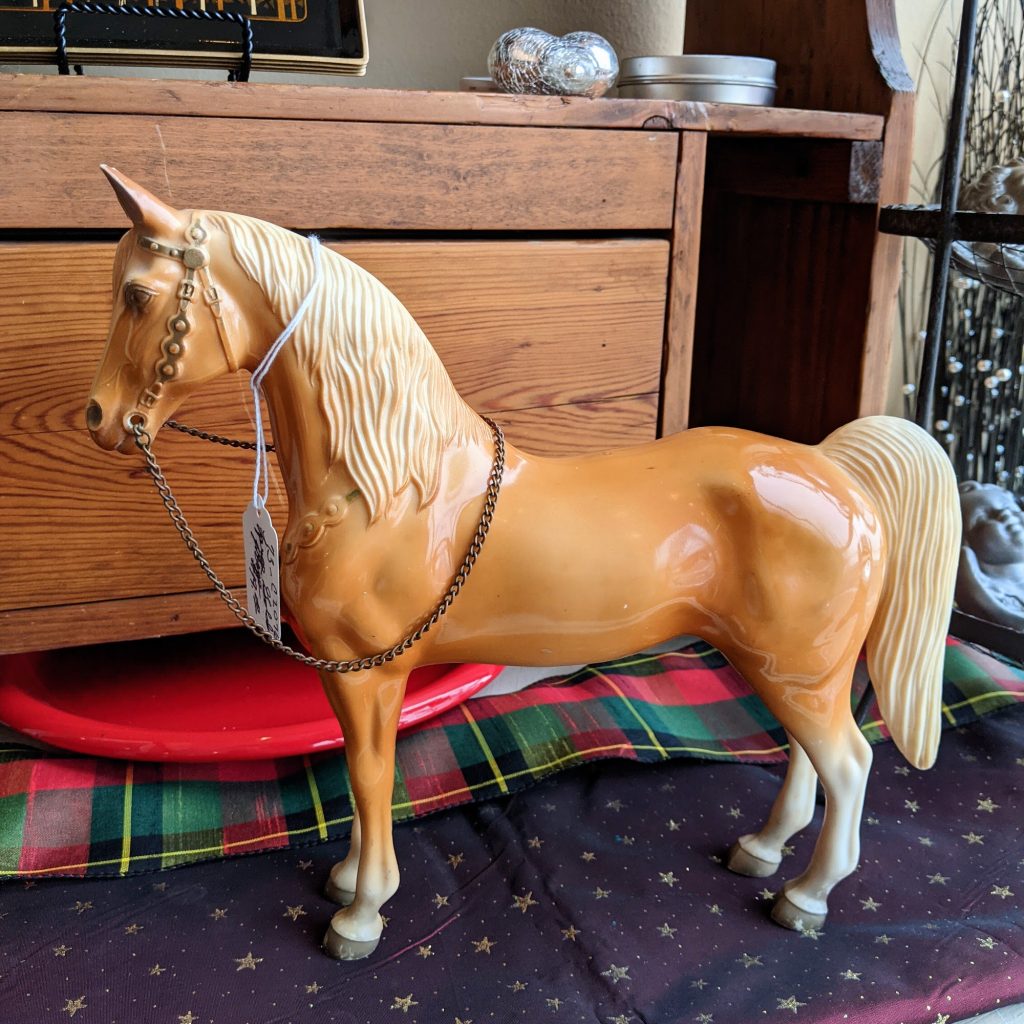
I picked the horse up, and in that magical moment as I held it, my grown-up brain started asking very practical, reasonable questions, “Are you really going to spend $20 on a toy horse? Where will you put it? It’s cool that you finally found it. That’s enough, right?”
I set the horse back down on the table. Ignored it while I looked around, and steadily fell into a well worn narrative. I know how to live without want or need. I know well the art of self-denial. I am Spartan, as unexcitable as I am rational. As my grown-up practicality started to win out and walk away, I stopped. Waited.
I asked my inner child, “Do you want that horse?” And I asked my adult self, “Are you ready to advocate for that child, and tell her it’s okay to want something?”
I bought the horse.
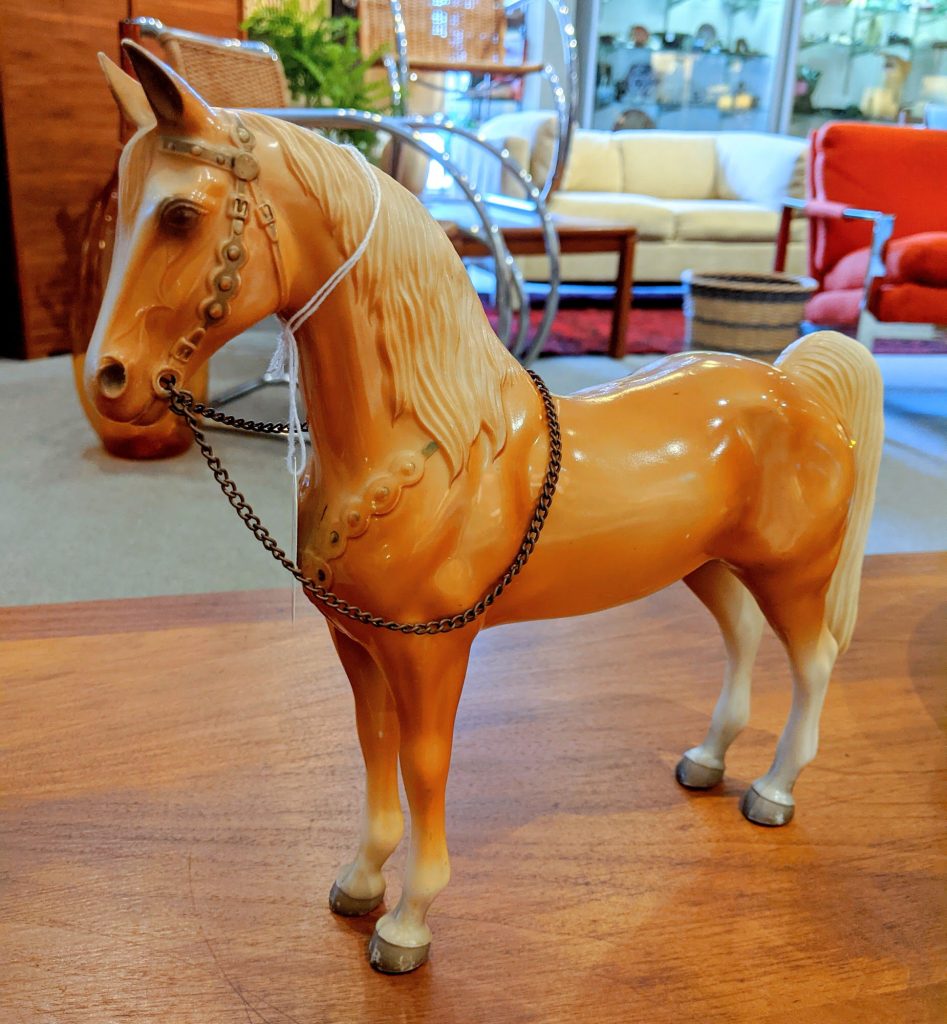
I had an epiphany, recently, that the father I knew daily was different from the person in the aisle of plastic horses. My father was a man who knew his limitations and what he couldn’t provide for me, and that pain defined so many details of our lives. But in the aisle of plastic horses, it was his inner child who set reason and guilt aside, and gave permission for me to have what he had always wanted.
There are many things I could write in a 2020 recap post. I could write about challenges, accomplishments, and milestones. I could write about how my business survived its sixth year during a pandemic. I could write about activism and advocacy and politics and injustice. I could show my best bravado and shake all my glittering, roaring resilience in the face of 2021. But honestly? What I am most proud of in 2020 is the level of self compassion I have finally started practicing, especially for the seemingly small things. And what I want to offer, as we end this year, is a chance for closure and resolution with ourselves.
In 2020, I have weekends again for the first time in years. In 2020, I stopped trying to tough my way through everything, including heightened racial stress and re-triggered childhood traumas. In 2020, I finally admitted that I have high functioning depression. In 2020, I took time to find and see a therapist (who’s great). In 2020, when I found myself diving into a million battles like I always do, I stopped and asked if I were fighting for myself, too. In 2020, I asked who I was on the days without my battle armor.
In 2020, I faced my vulnerability and started making life plans with my partner. In 2020, I proposed to the love of my life. In 2020, my fiance and I talked about all the things we will do to create a future we would have wished for our younger selves. In 2020, I wrote down everything I want to do and believe I have to do, and narrowed it down to what I must do. In 2020, I ate more potato chips and did fewer push-ups. In 2020, I started working on the resolve and self-compassion I will need to take care of my widowed mom. In 2020, I started working on letting go of guilt. In 2020, I hugged my inner child, and let her know I have become the parent she needed. I made space for the small magic, for her, and for me, too.
New Year’s Resolutions are nearly always about the expectations we set for our future selves, to be better than, even unrecognizable, to our past selves. It is interesting that we set resolutions as promises to our future selves rather than peace for our past selves. Resolution stems from the word, “resolve,” which is a funny word in that as a noun it implies firmness and power, but as a verb, an action, it implies settling and making peace. Who else and what else do we have to make peace with, but with the past?
Resolve, at its root, quite literally means “to loosen,” “to release,” “to reduce to simpler forms.” Perhaps 2020 was the year we gained clarity, not by complicating our problems, but by seeing them plainly. Not by ignoring how we got here, as our country and therefore our people have always been good at doing, but by having the resolve to seek closure for the trauma that prevents our peace, and whom we would otherwise become.
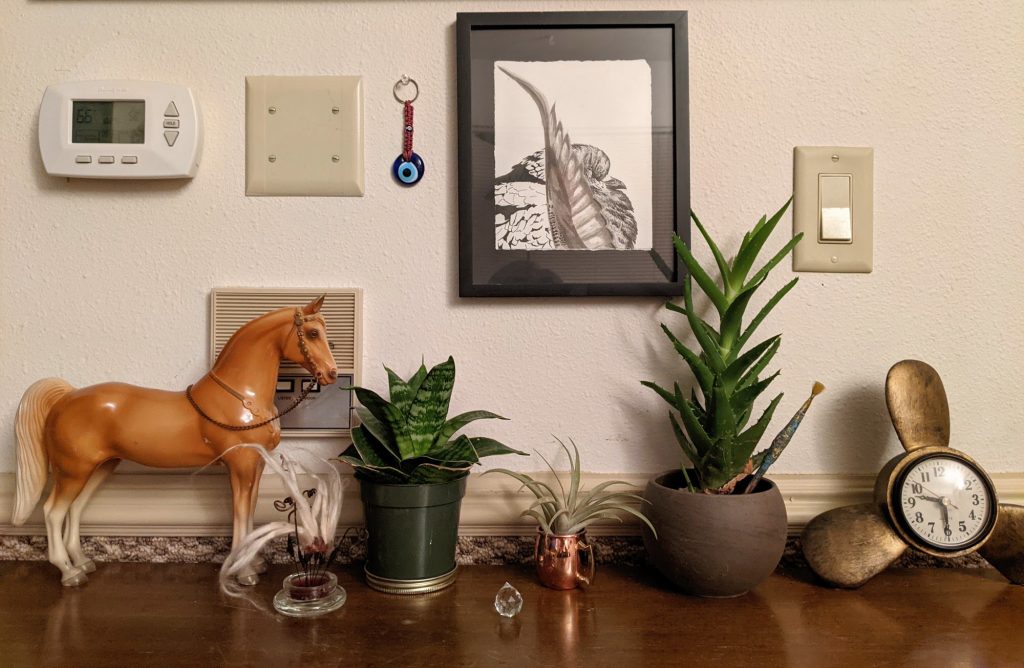

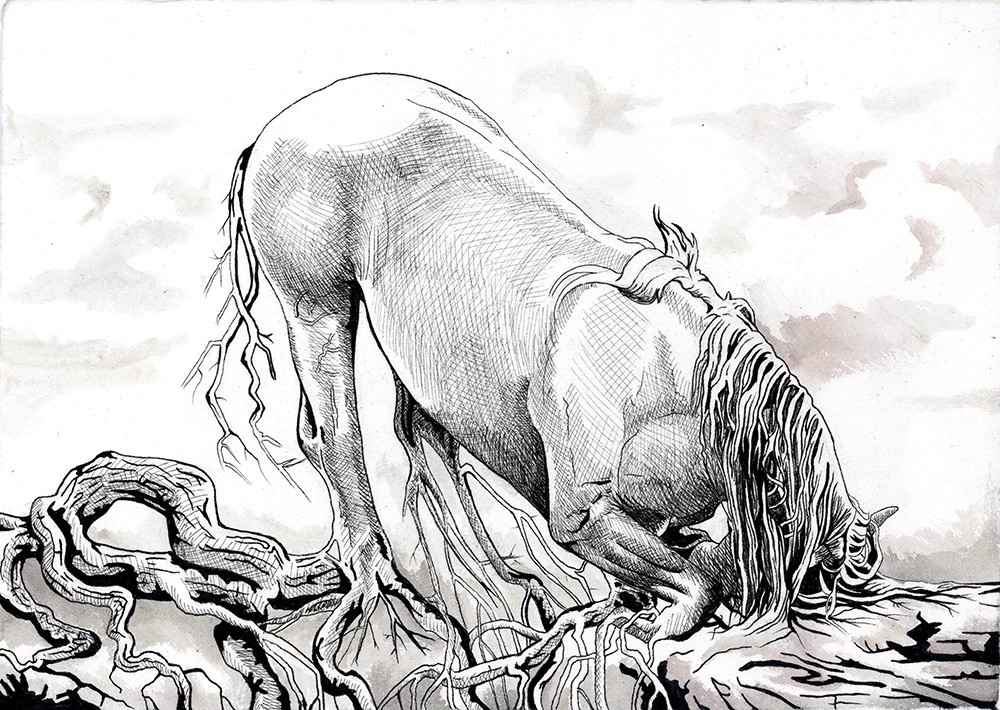
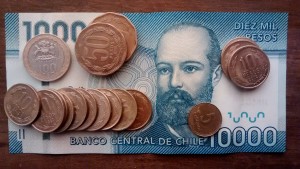
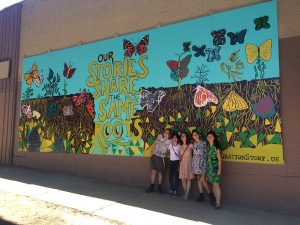
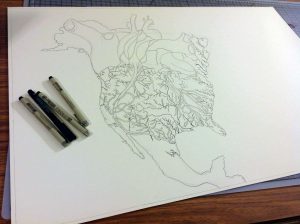
I believe everyone has a Talisman in their life. You have found yours, and I couldn’t be happier for you.